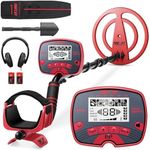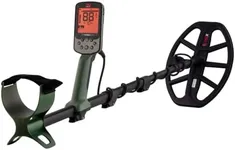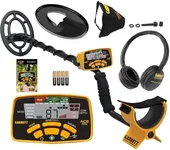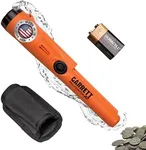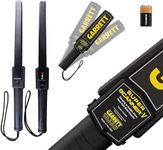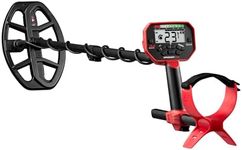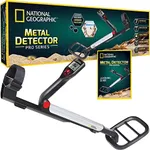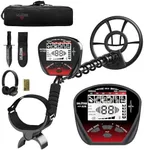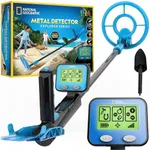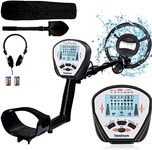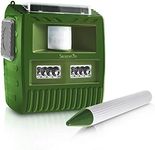Buying Guide for the Best Metal Dectectors
Choosing the right metal detector can be a rewarding experience, whether you're a hobbyist looking for coins and relics, or a professional searching for valuable metals. The key to finding the best metal detector for your needs is understanding the various specifications and how they impact performance. By considering your specific needs and the environments in which you'll be using the detector, you can make an informed decision that will enhance your metal detecting adventures.Operating FrequencyThe operating frequency of a metal detector refers to the number of electronic waves it sends into the ground per second. This spec is important because it affects the detector's sensitivity and depth capabilities. Lower frequencies (1-4 kHz) are better for detecting larger, deeper objects like relics and coins, while higher frequencies (15-100 kHz) are more sensitive to smaller objects like gold nuggets. If you're searching for a variety of items, a mid-range frequency (5-15 kHz) offers a good balance. Choose a frequency based on the type of targets you are most interested in finding.
DiscriminationDiscrimination is the metal detector's ability to distinguish between different types of metals. This feature is crucial for avoiding unwanted items like nails and pull-tabs. Basic discrimination allows you to filter out certain metals, while more advanced models offer adjustable discrimination settings to fine-tune your search. If you are searching in areas with a lot of trash, a detector with good discrimination will save you time and frustration. Consider your typical search environment and the types of metals you want to find when evaluating this feature.
Ground BalanceGround balance is a feature that helps the metal detector ignore the natural minerals in the soil, which can cause false signals. This is particularly important in areas with highly mineralized soil, such as beaches or gold prospecting sites. There are three types of ground balance: preset, manual, and automatic. Preset ground balance is simple and suitable for beginners, while manual ground balance allows for more precise adjustments. Automatic ground balance is convenient and adjusts on the fly. Choose a ground balance type based on your experience level and the mineralization of the areas you plan to search.
Search Coil Size and TypeThe search coil is the part of the metal detector that senses metal objects in the ground. Coil size and type affect the detector's depth and sensitivity. Larger coils (10 inches or more) cover more ground and detect deeper objects, but they can be less sensitive to small items. Smaller coils (6-9 inches) are more sensitive to small objects and better for detecting in trashy areas. There are also different coil types, such as concentric and double-D coils, each with its own advantages. Consider the size and type of targets you are searching for and the terrain you will be detecting in when choosing a coil.
Depth IndicatorA depth indicator shows how deep a detected object is buried. This feature is important because it helps you determine whether to dig for an object and how much effort will be required. Depth indicators can be simple, showing approximate depth, or more advanced, providing more precise measurements. If you are searching for deeply buried items, a detector with a reliable depth indicator can be very helpful. Consider how important depth information is to your searches when evaluating this feature.
Weight and ErgonomicsThe weight and ergonomics of a metal detector affect how comfortable it is to use for extended periods. Lighter detectors are easier to carry and maneuver, which is important if you plan to search for long hours. Ergonomic designs with adjustable shafts and comfortable grips can reduce fatigue and strain. If you have physical limitations or plan to detect for long periods, prioritize a lightweight and ergonomic model. Consider your physical condition and how long you plan to use the detector in one session when choosing a model.
WaterproofingWaterproofing is a feature that allows you to use the metal detector in wet conditions, such as on beaches, in shallow water, or during rain. Some detectors are fully waterproof, while others have waterproof coils but non-waterproof control boxes. If you plan to search in or near water, a waterproof detector is essential. Consider the environments you will be detecting in and whether you need a fully waterproof model or just a waterproof coil.
